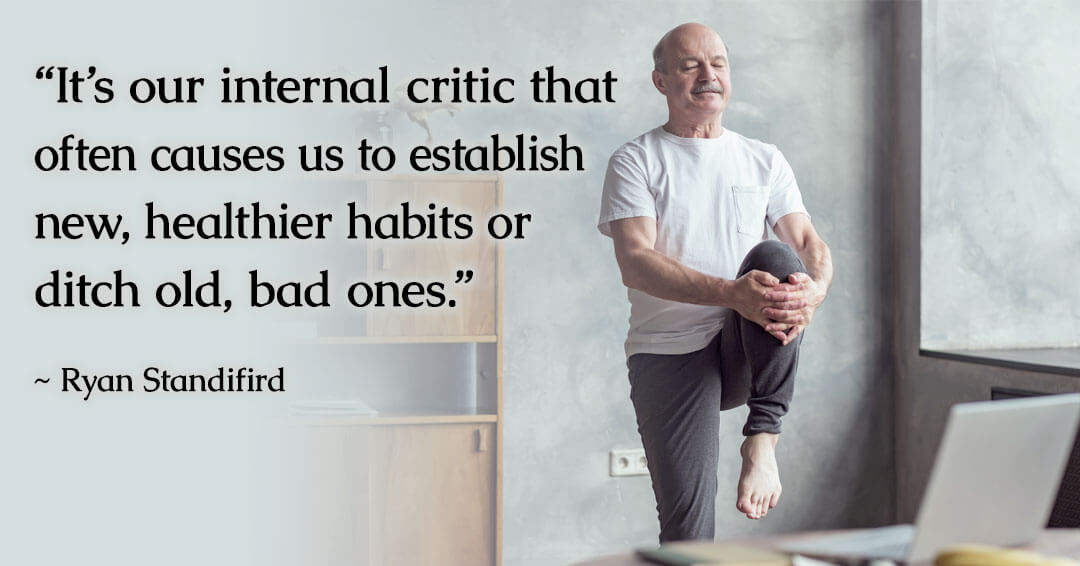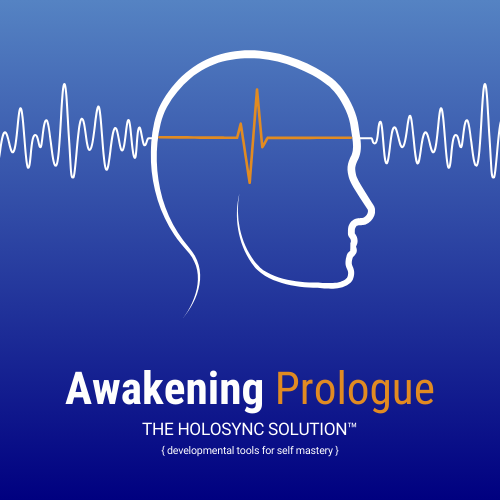

Making Criticism Effective
(The Key to Creating Real Change)
Issue #384 – Monday, August 7th, 2023
If you’ve ever been a coach, a teacher, a tutor, a parent, or a trainer…
…then you know there’s a nuance when it comes to criticism.
Even constructive criticism can be taken the wrong way or lead to frustration and hurt feelings.
But if someone wants to improve, they need to know what they’re doing wrong and what changes can make them better.
So how can you make criticism more effective without hurting anyone’s feelings?
To give you the answer, I’m sharing an essay with you today from Mind Power Managing Editor Ryan Standifird.
Ryan will reveal the science behind the most effective criticism methods and give some tips on how you can give critical advice in a way that others (or even yourself) will be more likely to accept and implement.
I know you’re going to love this!
Cheers,

Centerpointe CEO
P.S. You can transform your life by tapping into the power of…
...love, compassion, gratitude, and forgiveness.
How?
Scroll down to our Check It Out section below to find out.
Making Criticism Effective
(The Key to Creating Real Change)
By Ryan Standifird
No one likes to be criticized.
It’s tough enough to succeed in this world without other people telling you that you’re failing at something, that you’re doing something wrong, that you shouldn’t do X, Y or Z and that you SHOULD be doing something else.
Our natural reaction to criticism is often to get defensive, put up walls, and make excuses. This can lead to “doubling down” of the criticized action just to make a point. And criticism can also strain the relationship between the criticizer and the criticized.
This is because when you’re criticized, it can feel like you’re being attacked, that someone is out to put you down for some nefarious reason; that the criticizer must be jealous or feel insecure about themselves, which is why they are criticizing you in the first place.
It can’t possibly be that they have a point to their criticism…
…right?
Well, despite these natural reactions, sometimes being critical and accepting criticism is necessary. Sometimes there’s actually a very good point to the criticism that presents an opportunity for growth.
And yet, even constructive criticism with good intentions can come off as rude, mean, and offensive.
So, how can you criticize someone without triggering their defensive reaction?
There is a way.
Scientists have recently uncovered a method of criticism that makes it more persuasive, that leads to better outcomes and more opportunity to accept the criticism and make real changes.
So whether it’s a parent, a teacher, a spouse, a friend, or even yourself…
…this is the key to making criticism more effective at persuading a change in behavior.

The Key to Effective Criticism
Researchers at the University of Zurich in Switzerland recently tackled this task of persuasive criticism - specifically when it came to unethical behavior. Their goal was to determine whether there was an approach that was more effective at changing that behavior.
They found that one thing made criticism clearly more persuasive:
Empathy.
In the more than 1400-person study, researchers found that if the group being criticized felt that the criticism was coming from a place of empathy, of compassion, and understanding…
…it led to more of them accepting the criticism and realizing that a change of behavior was warranted.
"When messages include dual concern by expressing concern for the group that is criticized while still accusing the group of causing harm, it reduces this problematic inference,” said Lauren Howe, the leader of the study. “Dual concern messages are more effective at encouraging members of a group to agree with the criticism of their own group."
Dual concern means concern that the criticized behavior is harmful, but also concern for the challenges that the group enacting this behavior faces. Basically, empathizing with the group, understanding the difficulties that might have created this behavior in the first place.
But this isn’t a silver bullet. It won’t always work for everyone. In fact, according to this study, folks were only 8.6% more likely to accept criticism from a group that had different beliefs if they felt that group was empathetic to them.
But that’s nothing to sneeze at either. That’s 1-in-12 people who otherwise wouldn’t have been persuaded.
Self-Criticism & Self-Empathy
Has anyone ever told you that you’re too hard on yourself?
See, criticism can also come from within. Oftentimes we’re our biggest critics, which can be a good thing when it spurs us to change our behavior. It’s our internal critic that often causes us to establish new, healthier habits or ditch old, bad ones.
But if that internal critic isn’t coming from a place of empathy, if it’s mimicking a teacher, a parent, or someone else from our childhood who was never satisfied with our best efforts, well it’s not doing us any favors. And it’s not convincing us to truly change our behavior.
Sometimes we can get caught in a loop where we feel that we’re never good enough, or that we need to be perfect all the time. And that can lead to feeling that we’re always failing. In this way, our internal critic can really wreak havoc on our confidence and feelings of self-worth.
However, if we can change that internal self-talk to be more loving, more empathetic and understanding…
…then we can become empowered by our internal critic instead!
How to Inject Empathy Into Criticism
Whether it’s yourself, your spouse, a coworker, your child, a student, or anyone else who you find yourself giving criticism to, you can be more effective if you add a little empathy.
This will not only increase the chances that they take your advice constructively, but also will help keep your relationship on good terms.
So, how do you add empathy to constructive criticism?
Here are three major ways that are effective:
1. Show that you understand their perspective: Before jumping right into what they are doing wrong, tell them first that you understand where they are coming from. Let them know that you can see the situation from their perspective. Ackno
wledge their efforts, intentions, and challenges they may have faced. By doing so, you create a safe space for open dialogue and make them more receptive to your feedback.
Example: "I understand that you've put a lot of effort into this project, and I appreciate your dedication. I also recognize that it can be challenging to juggle multiple tasks simultaneously."
2. Focus on specific behavior, not the person: When providing constructive criticism, it's essential to focus on the specific behavior or actions that need improvement, rather than attacking the person's character or making broad generalizations. This approach helps separate the critique from their personal identity, reducing the chances of them feeling attacked or defensive. It's crucial to emphasize that you are criticizing the behavior, not the individual.
Example: Instead of saying, "You are always careless and never pay attention to what I say," you could rephrase it as, "I noticed that you forgot to get the salad mix that I asked you to pick up from the store. Let's figure out how we can improve our communication."

3. Offer constructive suggestions and support: Empathy in constructive criticism is not just about pointing out flaws, but also providing guidance and support for improvement. (This is especially important during self-criticism!) Instead of merely highlighting the negative aspects, offer constructive suggestions for a better outcome next time. Focus on providing actionable steps that lead to improvement. This approach shows that you genuinely care about their growth and success.
Example: "Wow, I really struggle with public speaking. I should look up some workshops or training sessions that can help me gain more confidence and clarity for next time."
Remember, the key to injecting empathy into constructive criticism is to approach the situation with understanding, respect, and a genuine desire to help the person grow. By combining empathy with constructive feedback, you can create an environment that encourages learning, growth, and stronger relationships.
An Easy Empathy Boost
Want a quick and easy way to add more empathy and compassion to your life?
Our Journey to Self Suite is a collection of Holosync soundtracks specifically designed to empower your subconscious mind so that you can experience more gratitude, love, forgiveness and compassion - leading to more empathy and understanding of yourself and others.
Follow this link now to learn more!
Check It Out!
Journey to Self Suite
Tap into the power of your unconscious mind to create deep experiences of love, compassion, gratitude, and forgiveness.
Four powerful Holosync soundtracks help you experience
profound levels of deep personal fulfillment.
Wise Words

This Really Happened
This session was very different from most everything I've tried before. I found myself feeling very relaxed. My mind seemed to fade in and out. I didn't notice that I had faded out until I faded back in. On fade in I would become aware that a phrase was repeating in my mind. One time it was "Let go and let God". Another one was "I love myself. I love myself." The singing bowls were beautiful and I really enjoyed the random tones. I felt like the rain sounds had washed my soul.
~Jenn M
5-Day Challenge Participant
In Case You Missed It - Listen to It!
Responding vs Reacting
A Neuroscientific and Proven Perspective
By MaryEllen Tribby
July 17, 2023
We Want to Hear From You!
Who was your biggest critic growing up? Did they use empathy?
Post your story on our Facebook Page.
Not on Facebook? Tell me about the impact that meditation with Holosync has had on your daily life. Stress? Sleep? Weight Loss? Focus? Spiritual Connection? Other? Email your story here.






















